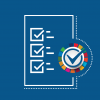News
Displaying Results 1 - 24 of 24
The shift towards the digital exchange of trade data and documents can improve efficiency, reduce costs, enhance transparency, and enable better accessibility to and analysis of data. Furthermore, it has the potential to foster greener and more inclusive trade. Yet, efforts to digitalize data and…
Recent data from the UNCTAD Global Trade Update reveals a promising outlook for global trade. Following a decline in the last year, the volume of world merchandise trade is forecast to increase by 2.6% in 2024 and 3.3% in 2025. One of the most notable trends in 2024 is the significant rise in…
The most senior statisticians of countries across and beyond the UNECE region meet in Geneva this week for the 72nd annual Plenary Session of the Conference of European Statisticians. Kicking off their deliberations, a shared session with UN-GGIM Europe, the United Nations’ European geospatial body…
In today's data-driven world, organizations face the challenge of efficiently integrating and making sense of vast amounts of diverse data. Semantics and semantic interoperability provide a solution by enabling the meaningful interpretation and integration of data across heterogeneous systems. To…
As one of the United Nations regional economic commissions, UNECE has a key role to play in helping countries with economies in transition to better integrate into the global economy. UNECE is at the forefront of setting international standards on cross-border procedures, identifying regulatory and…
Picture your favorite tree-lined street or childhood park. Now picture it without trees. Would it be the same?
On 30 March, at the Regional Forum for Sustainable Development, UNECE debuted the short film “Why Trees?”, which invites us to reflect on our human connection with the trees around us.…
Standards touch nearly every aspect of our daily life through all the products that we use and consume each day (for example, mobile phones, vehicles, cleaning products, personal protection equipment, toys, and others). When they are produced or introduced on the market, products are checked for…
In the past years, Central Asia has been facing major climate-change related challenges – drought, floods, desertification, sandstorms, extreme cold and heat spells – and many more. Not only have these affected rural areas, but cities have been suffering, too. Accentuated by increased traffic…
Technologies can enhance commerce if clear international standards are in place to ensure that their use is harmonized between trading partners, and if there is regulatory coherence among countries.
Ways in which digital and green transformations can improve quality infrastructure for trade in…
Standards are in everything that surround us. Just the mobile phone in your pocket uses hundreds of standards, from the cellular network and the cable connectivity to physical elements such as the processing chips and the LED screen, not to mention security testing and the process design. We rely…
New good practice guidelines for statistical offices have been published by UNECE’s body of experts dedicated to modernizing official statistics. The role of brand management, marketing and crisis communications for Statistical Organisations examines the importance of reputation for producers of…
Cities, which are already responsible for around 75% of global CO2 emissions, are also at the forefront of fighting climate change and simultaneously are particularly vulnerable to its impacts. Urban trees and forests have been highlighted as a solution that can help to achieve the SDGs and make…
Policymakers looking for innovative solutions to global problems are increasingly recognizing that the answers have been around for a long time even before the earth got populated by humans. Trees can help achieve pressing global objectives for sustainable development, biodiversity conservation,…
Since their independence, countries in Eastern Europe and the South Caucasus (EESC) – Armenia, Azerbaijan, Belarus, Georgia, the Republic of Moldova and Ukraine – have introduced far-reaching reforms to boost innovation and benefit from the potential of the growing knowledge-based economy.…
Developing the capacity of statistical systems to respond to ever-changing demands is a core component of UNECE statistical work, linked directly to several of the targets of the 2030 Agenda for Sustainable Development. Key tools used for capacity development have traditionally been face-to-face…
In 2022, we will celebrate 30 years since the formulation of the Fundamental Principles of Official Statistics and their adoption by UNECE. The Fundamental Principles were subsequently adopted in 1994 by the United Nations Statistical Commission; endorsed by the Economic and Social Council (ECOSOC…
By Ms. Olga Algayerova, UN Under-Secretary-General and Executive Secretary of UNECE, and Ms. Elisabete Quintas da Silva, Head of Department, Sustainable and Efficient Use of Resources Operational Programme, Government of Portugal, and Chair of the UNECE Committee on Environmental Policy.
This…
The importance of statistical information to help us cope with disasters has never been clearer than over the past year. As the Covid-19 pandemic has gripped the world, numbers have become our bread and butter. Yet the pandemic has also highlighted the challenges and imperfections in many systems; …
International collaboration facilitated by UNECE is helping statistical organizations around the world move towards producing essential statistics in innovative ways based on machine learning (ML) and artificial intelligence (AI).
The Machine Learning 2021 Group, led by the United Kingdom’s Data…
Director General of Statistics Finland Marjo Bruun has chaired the Conference of European Statisticians (CES), UNECE’s statistical body, since 2016. As she retires from Statistics Finland at the end of this month, she reflects on how leading this international statistical work has broadened her…
COVID-19 has significantly changed the way UN/CEFACT works. As the focal point within the United Nations Economic and Social Council for trade facilitation recommendations and electronic business standards, UN/CEFACT typically convenes experts twice per year to a week-long Forum to discuss current…
With the consequences of COVID-19 still unfolding, one area of major disruption has been to global food systems, resulting in significant increases in food loss and waste.
Today, the first ever International Day of Awareness of Food Loss and Waste, is a wake-up call. We must access and make…
Risk is a part of our everyday lives. When we wear a helmet to ride a bike, for example, we accept a small inconvenience to reduce the risk of a fall or an accident. When a homeowner decides to retrofit their house, they incur a cost to shield against an earthquake or a flood. Faced with the COVID…
Every year we lose about 14% of the food produced before it is sold, and this does not even include the food never harvested. Even more is wasted at retail and consumer levels. At the same time, over 800 million people worldwide suffer from hunger, while food loss is a major contributor to CO2…





















